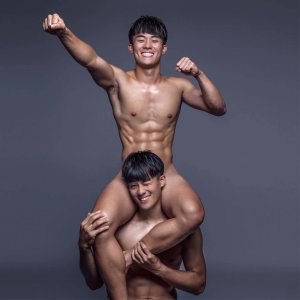
Cette critique peut contenir des spoilers
Thai Series became more diversified!
Well, 2018 is the year where Thai series became globalized. We have many Thai series on Netflix now and GMM, before better known for light hearted and cheesy romantic comedies, dared to make an audacious decision: invest in diversified genres and try to open up to the international community. The Gifted is the best example of the good results that they've got so far.First of all, I have to congratulate the writters and the directors. The plot is smart, refreshing and stylish. The tensions and characters are slowly and progressively built, teasing the audience and making us keep watching. The season is divided in two parts. The first one introduces the characters and their habilities while the second portion focus on the secret of the school. Although I understand the reasons they did it, I felt that excepting Pang, Wave and Nantaan, the other characters almost devanished during the second part of the season. We know that all of them were there, but it seemed they became just secondary characters. Probably they were expecting to make another season and the development of those characters will happen on season two.
Speaking about the characters, I have to say that I loved them, specially Pang, Wave, Nantaan and Ohm. Pang is the classic good guy, the hero whose qualities include idealism, courage and morality; while Wave is the charming antihero who is lonely and seeks for friends. Albeit I loved both guys, I feel that they were more effective in creating Chimon's character. Wave's episode showed us his history before the school and made us sympathize with him. Knowing about what that teacher made to him in the past humanized him. Strangely, we don't have a single moment in this series where we can see Pang's life before or outside the school. Why is he so heroic? It is a mystery the show could unravel in the next season. Of course we know the school made Pang loses his best friend, which is a good reason to make him hate the school system, but it does not explain everything. Even before that, Pang was already idealistic and we don't know why. In order to humanize him a bit more, we should know about his past, his motivations, maybe the next season should explore his friendship with Nic when they were kids.
Some people even say that Wave and Pang could date. Well, I generally don't like when BL fans try to put BL plots in every Thai series. In this case, however, I would like to say that a relationship between them, although not a requisite, would be interesting. They made a really good team. During the first part of the season, I thought Pang, Ohm and Nantaam would emulate the classical Harry Potter-kind trio, where there is a male heroic protagonist, a smart girl and a playful boy (Yes, Pang as Harry, Nantaam as Hermione and Ohm as Rony). But after Pang and Wave made a deal, they became closer and I liked a lot their interactions. They could be a great couple if the story chooses a realistic approach instead of a cheesy romance. I would love to see WavePang and NantaamOhm becoming true, but I am OK if it does not happen. The story is good enough withou any romance.
Speaking about the acting, I liked everyone, but I have to say that the three best performances, in my opinion, goes to Bird Wanchana Sawasdee as the director; Katreeya English as professor Ladda; and Gun Atthaphan as Pun. They all made me deeply believe they were not characters, but real persons. Bird was able to be evil without stereotypes, specially when he was smiling. Khun Ladda, despite being a strict teacher, was charismatic in a strange way. I felt bad when she was fired like she was one of the good guys. Technically, she was not. But she was not evil too. Looking forward to see more about her in the future. I hope she will be back next season and we can see more about her past. Finally, Gun Attapphan deserved an oscar for his acting on episode 5.
About the potencials, although I realize that Ohm, Pang, Wave and Pun are the most "powerfull", Nantaam's potencial is my favorite. I am historian. The past is something alive for me. Having her potencial could make me discover so much things about the past. I could go to Egypt, touch the pyramids and discover how they were built! Can you imagine that? I could go to India, touch the Bodhi Tree and discover how Buddha's face looked like. Maybe go to Jerusalem and make the same thing with Jesus. I could discover who killed Kennedy! This would be fucking cool. I even have a heroine nickname for her: The Historian.
About the plot, I still wanna say that the school seems to me a metaphor of Thai society nowadays. The country is facing a military dictatorship for years and a small group of people rules all the nation from the top of the pyramid. For me, Pang is like the thai activists who wanna take down all the corrupted, unequal and authoritarian Thai political system and make everybody equal and free. Like the director, the Thai dictators persecute the ones who fight for justice. Chanon, the studends who got injured by the experiments and that girl who was killed by a gifted student; all of them represent many activists who have been jailed or killed by the Thai military. The school system separate students by their grades and force them to compete each other. The competition between the students is a strategy used by the system to distract them from fighting the unjustice. It is the same thing that happens in Thai society, where the struggle between Red Shirts and Yellow Shirts (if you don't know, google it) made the military dictatorship possible. At the end of the first season, we see that Pang left a video for their fellows, begging them to use their privileges to fight the system, not to collaborate with it. I see that video as a call for fighting against authoritarianism. It is a beautiful message of hope in a country needing it desperately.
There are more things I would like to say, but I think I have written too much. Thx for everyone who have read everything! See you next year!
Cet avis était-il utile?
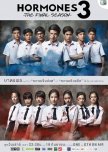
Differently, from most people, I think the third season marks a come back to the good times of season 1. I loved the 'rebel' first season, but the second one seemed conservative and too concerned to please mommy and daddy. This season was more sensible and realistic when dealing with controversial issues, like AIDS and gay parents.
I liked as well the end of the season, I think they were more skilful to end the story than the second season. It was a wonderful ending for one of the best series I have ever watched. I wanted that other Thai series could be so realistic as this one. Tired of series with poor stories and bad acting like so many things I see around.
(Sorry for my poor English).
Cet avis était-il utile?

A Tale of a Thousand Stars
41 personnes ont trouvé cette critique utile
Cette critique peut contenir des spoilers
A turning point for GMM BL series, but not a masterpiece
Most people loved this series, but I don't like it so much. One of the main reasons is the acting. Many people might hate me for saying that, but Earth's performance is far inferior to Mix's. I really cannot feel much sympathy for Phupha. I don't hate him, but I don't like him either. He causes me indifference, which is a problem in a series that depends on its main characters so much.Although people say 1000 Stars is a mature series, it looks like more a fairy tale. When I think about a mature movie or series, fairy tales don't come to my mind. A mature series explore real issues faced by adults. This series is not like that. The main purpose here is to make the audience emotional to Tian's redemption story. It is true that we are presented to the struggle of the poor villagers, but this is more to develop Tian's character other than denouncing or reflecting on North Thailand's social issues. If they had explored the social problem more seriously, maybe we could consider it a mature series. Poverty here is portrayed in a very romanticized way. It doesn't seem real. The plight of the villagers are not developed and the difficulties faced by Tian in the village are there to emphasize his redemption arc, not to give life to any hidden social dilemma. All the community's suffering is more a background to the development of Tian & Phupha's romance. Even the conflict with the weapon/drug dealers is easily solved. If the solution was only calling the police and leading an armed attack on the bad guys' settlement, why have they never done this before?
But it is ok, a TV show doesn't need to be mature to be good. I just expected more from 1000 Stars. The production is better than other GMM series, but it is still inferior to Nadao, for example. Some scenes are embarrassingly unrealistic, such as the drowning of the school kid in episode 2. Other scenes are simply cringe, such as the episode where the villagers and Tian observe a sexual performance inside a wooden house. This kind of comedic moments were a turn off. I would have preferred if they explored more the psychology of the characters. Phupha, for instance, is an unidimensional character. It is difficult to develop a realistic romance when one of the characters is so plain and shallow.
Finally, I disliked a lot the way they treated Tian's crimes. He organized a street race and gave his car to the killer. According to Thai law, he should be prosecuted. I have the feeling that the plot justifies a very bad underlying moral in Thai society: the rich ones only need to make a "social work/charity" to get away with their crimes, no matter what they did. No one ends up behind bars. If you are curious about what I am saying here, search for Orachorn “Praewa” Thephasadin's case. It happened in 2010 and it is a very good example of how rich young Thai people can do whatever they want and get away with it .
If you pay attention, the main ideia here is: a rich boy causes someone else's death. Through a series of criminal tricks, his family gets the heart of the girl who was indirectly killed by their son and gives the boy the heart of the same girl the boy helped to kill. Then, the boy gets away with all his crimes, devotes part of his life to help the poor villagers, pays for his karma and gets a price: a hot boyfriend.
No justice for Torfun at all.
In sum, it is an interesting GMM series. Much better than the average for a series from this TV channel, but not the masterpiece it could have been.
Cet avis était-il utile?

Cette critique peut contenir des spoilers
Day is not a likeable character
Many won't like me because of my review, but I'll be honest. When I started watching this series I really liked it. But, after a few chapters, I started to find it difficult to understand the character Day. I completely understand the fact that he is angry about losing his vision. I would possibly be even angrier than he was. Even so, I think the script created a very inconsistent character. It is very difficult to understand the character's way of thinking and motivations. Let me explain.Not long after they meet, Day becomes interested in Mhok and we can see this in the way Day interacts with his caretaker. The series clearly demonstrates that the interest was MUTUAL from the beginning. However, without a convincing explanation, Day rejects Mhok when Mhok confesses his love to him, saying that he likes more affectionate men. It didn't make any sense since Mhok was always kind and affectionate to him all the time.
After they start dating, things seem to be going well, but Day decides to break up with Mhok because Mhok lied about his job. This breakup and his motivation were quite unconvincing. Day has the right to be upset, but ending everything just because of that seemed like an exaggeration. So Mhok is not worthy anymore for just one mistake? He lied for being overprotecting, he was not committing genocide for the God sake! The fact that Day cannot forgive Mhok makes him a bit childish.
Actually, I think Day's character didn't treat Mhok and Night well for most of the series. I hate stories where one of the characters tries everything he can to make the relationship works, while the other just complains and doesn't help at all. Mhok did everything for Day but Day didn't reciprocate in the same way. Day, by the way, never apologized for anything. He treated his brother Night like trash without a justifiable reason (Night wasn't responsible for the car accident) and Did not apologize for that. He broke up with Mhok for a stupid reason and did not apologize also. When Mhok comes back and tries to renew the relationship, he rejects him again as if Mhok was a monster who had made a terrible mistake. How much drama! Then all it took was for his mother to say a few self-help phrases for him to completely change his mind and accept Mhok again. Sorry, but all of Day's fickle attitudes were not justified by what the series showed to us. Day was poorly written.
Cet avis était-il utile?
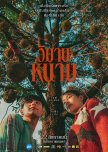
The Paradise of Thorns
6 personnes ont trouvé cette critique utile
Cette critique peut contenir des spoilers
A bit chaotic (Spoiler alert!)
I am a foreigner who lives in Thailand for some time and I went to the movie theater to watch this movie. Thai media have been talking about it for a while and I was curious to see what Naruebet Kuno (the same director of I Told Sunset About You - ITSAY) was going to do here.I can say I have mixed feelings about the overall result. Kuno is still very good in cinematography. The photography in this movie is so pretty and eye catching as in ITSAY, but we have here the same problem we had in ITSAY also: it is a bit overdramatic in some points. Don't get me wrong, I really like ITSAY, but I have the feeling that episode 4, for example, was a bit too much in terms of emotions. The same thing happens in Paradise of Thorns. The first 2/3 parts of the movie are more balanced, but the last 1/3 looks like somehow a stereotyped Latin American Soap Opera.
It is important to say that the story doesn't talk much about the inequality brought by the lack of recognition of gay rights by the State. This is not an LGBTQIA+ agenda movie (which is not necessarily bad). This topic is just a starting point for the main issue: The fight between the characters for possession of the lands where the Durians are planted. Basically, all the characters are pretty f*cked up and they see the Durians as their gold ticket. The cast is pretty convincing, specially the four main actors and actresses: Jeff Satur, Engfa Waraha, Harit Buayoi and Seeda Puapimon.
Thongkham (Jeff Satur) and Mo (Engfa Waraha) are the main rivals, as they dispute the preference of Saeng, the new owner of the land after her son's death. Saeng is a greedy and arrogant old woman who likes to see Thongkham and Mo humiliate themselves to please her, while Jingna (Harit) is the handsome Mo's brother who comes to work in the farm and falls in love with Thongkham. Jingna and Thongkham's relationship is sweet and charming, but not that well developed. This is probably one of the problems in the movie, although it didn't bother me that much. Some people also might think that the "greedy topic" is not so developed also. I would agree. What is this movie about? Love? Greedy? Selfishness? Rivalry? A love triangle? Maybe a bit of all of this? Well, when you try to put so many things together, maybe you might fail to develop so many topics at the same time. This might have happened here.
The rivalry between Mo and Thongkham grows to the point where they commit atrocities. Mo kills Saeng and makes the old woman sign a declaration before she dies, transferring the land to her name. Mo tries to expel Thongkham from her new possession, but he reacts and tries to r4pe her. The scene is full of screams and violence. Like a real Mexican soap opera! When the two are about to resolve their problems, Mo's new husband appears and tries to kill Thongkham, who is saved by his boyfriend, Jingna. In the middle of this confusing fight scene, Jingna ends up being killed too. With that, Thongkham loses the second love of his life. Tragic as a Greek tragedy!
My biggest disappointment with the film was not that it ended with the death of a beloved character (Jingna was perhaps the only character with any integrity in this whole story), but the fact that it was a very cliché ending. Before the husband showed up and tried to kill Thongkham, the first thing I thought was: "I hope they don't end the film with the husband showing up and killing someone." Well, that's exactly what happened. I thought it was an uncreative ending. More of the same.
Paradoxically, I still enjoyed watching the film. I should have hated it, but I didn't. The thing is: this movie makes you get the feeling that you're watching something with flaws here and there, but when you put it all together, the end result still pleases you in a strange way. At least that's what I'm feeling now, two days after seeing the film. My advice is that you watch it and draw your own conclusions.
Cet avis était-il utile?
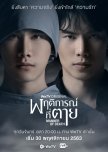
Cette critique peut contenir des spoilers
Good despite the flaws.
Did I like it? Yeah!Did I love it? No.
It is a good and innovative series for a BL. No romantic rape and no toxic relationship for the main couple. That's good! So good to see Thai series shooting in different locations, specially alfresco. The mysterious atmosphere is amazing! We can see that the production and direction could take advantage of northern Thailand landscape which improved the cinematography.
The first part of the series is a bit slow, specially the episodes 2 - 7. After that, the series' pace accelerates and the story is quite intriguing.
I need to compliment Bhu and Putter for their cute and adorable relationship as Tat and Sorn. I simply loved them. I want a special movie or something only for them.
Max is very good as Tan, but I didn't like Tul's acting that much. I really like him as a Thai star and celebrity, but I still think he needs to improve.
I believe that the murder plot and the romance were not well connected. Everytime I saw Bun and Tan together I had the feeling that their scenes were a bit off.
I didn't like either that they made Rungtiwa a love-revenger. I would prefer if she did what she did for money. So everything is about a crazy b*tch who was dumped by his lover who decided later to date his younger sister? Too much soap opera drama for me. Being a b*tch because of money would be more appealing and even realistic.
There are some holes in the main plot either. For example: nobody checked the cloud storage before? That ending was clearly a deus ex machina.
Nevertheless, I enjoyed this series very much and I hope we can get more BLs like that in the future!
Please, no engineering students anymore.
Cet avis était-il utile?

Cette critique peut contenir des spoilers
It should be called GASLIGHTING THE SERIES
Zeke's character was an a.ssh*le most of the time. I think he was the real villain of the series. Our Story The Series innovated because the good guy in the story is the villain at the same time. Let's get to the facts: Zeke wasn't reciprocated by Kevin and that's no big deal. It's normal to not have love reciprocated. Kevin never had an obligation to respond to Zeke's love. Nobody has. It's true that Kevin was harsh when he said Zeke was disgusting, that was mean. But gay men who haven't come out of the closet can still have this kind of reaction when confronted about their sexuality. I have the impression that the story implies that Kevin had an obligation to respond to Zeke's love, which is not correct.The point is: Kevin is not the monster Zeke says he is. The fact that Zeke had depression after Kevin's rejection is not Kevin's fault. No one is obligated to respond to another person's love. Just as Kevin lacked maturity in dealing with his friend's confession of love, Zeke also lacked maturity in accepting rejection.
Then Zeke goes to Manila, falls in love with Fifth. Everything was fine until Kevin got back. Then, Zeke freaks out and treats Kevin like a demon, not accepting his excuses. Out of nowhere, he changes his attitude and starts to notice Kevin and starts treating Fifth with indifference. Zeke gaslights both Fifth and Kevin. He makes Kevin feel guilty about the past and mistreats him all the time, while at the same time letting him get closer and giving him hope. On the other hand, Zeke makes Fifth feel like he's in the wrong for being jealous of Kevin, even though Fifth did NOTHING wrong. And Zeke had the nerve to lie to Fifth, saying that Kevin was just a childhood friend, hiding the fact that he was in love with Kevin his entire childhood. Fifth breaks up with Zeke because Zeke lets Kevin get close without telling him to stay away. It's obvious that Fifth felt betrayed when he saw his boyfriend flirting with another guy.
Zeke's gaslighting was so well done that he makes EVERYONE apologize to him, but he doesn't apologize to anyone. He treated both Kevin and Fifth like shit most of the time, yet he ended up like the misunderstood victim in the end as they both came crawling to his feet to apologize. Sorry for what? Kevin had indeed been wrong in the past, but he had been humiliating himself by apologizing for months. Zeke saw his suffering for his past mistake and stepped on him out of spite, out of pure revenge. As for Fifth, until the last moment, in the hospital, he is the one who apologizes to Zeke. He goes so far as to say he was selfish! Hey?! When has he been selfish? He was the most selfless guy on the show. He tried to help Kevin in the beginning, he tried to be understanding, he always apologized when he was wrong. While Zeke lied to Fifth multiple times and did NOT apologize even once!
Just because he was in a car accident were all his mistakes forgotten? Zeke's mother accused Kevin of being to blame for Zeke's accident! Turns out it wasn't anyone's fault but his own for driving and using his phone at the same time! Even the accident was on Kevin's account! Absurd! To make matters worse, after treating Kevin well for several days in Baguio, he rejects the poor guy at the hospital once again! Kevin comes to say goodbye at the hospital and he complains: "What are you doing here?" What??!! Zeke must be bipolar, it's unbelievable! He keeps changing sides and playing with both Kevin and Fifth all the time!
The only good thing here is Jason/Joel. They were, at least, funny.
Cet avis était-il utile?
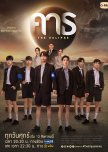
Weak plot, cheap production
I like the two main actor's performance here, but everything else is a mess. The gay gang who were protesting for more freedom was annoyingly stereotyped and their protest seemed unrealistic. I couldn't buy the oppressive environment of the school because the cheap production gave a fake scent to the entire show. Although the series intends to be political and discusses about freedom in a authoritarian system, the result is a childish-like and silly series. The production and acting (apart from the main actors) seem to be so amateur and (unintentionally) humourous that the viewers have the feeling they are watching a Grade 9 school play. Since the series is not more than an amateur school play, all the political situation and possible discussions are wasted. The viewers cannot even remember that this is (supposedly) a political series because we are embarrassed by the various ludicrous and amateurish scenes.Cet avis était-il utile?
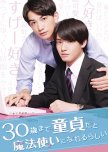
30Sai made Doteida to Mahotsukai ni Narerurashi
5 personnes ont trouvé cette critique utile
Cette critique peut contenir des spoilers
Full of stereotypes
Cherry Magic came to the BL stage in a year where BL series have diversified a lot. In 2020 we saw many different BLs from Thailand, the Philippines, Vietnam, etc. Unfortunately, quantity is different from quality. Every year we still get too many repetitive and boring engineering series coming from Thailand, specially from that channel number 25 that we all know.When I heard about CM, I was excited since it seemed to be a refreshing plot set in Japan, very different from the series we are used to. I watched the first episode and I felt ok. It was promising. But then my expectations didn't match the reality. The fact is that CM is a very classical and traditional BL series. It looks like refreshing to some people because we are used to Thai BLs for a long time, so anything that is not set in a warm university campus in Southeast Asia looks like a genius thing. But if you are already used to Japanese Yaoi animes or mangas, you probably have already seen several stories like CM. Everything is excessive fluffy and unrealistic. Some situations that work very well in animation cannot be transported to the series without causing cringe and embarrassing feelings for a more mature and demanding audience. One example is when Kurosawa's boss is angry at him for some unknown reason. Instead of explaining the motives for his angriness, the man keeps grumbling "Hum" for several minutes. Adachi needs to use his reading mind powers to discover that their boss only wanted a different cake flavor. Well, who is the person who would keep mumbling "Hum" - just like a cow - for 10 minutes instead of asking directly for a new cake? It is a funny scene for animations, but quite odd when we see it in live-action.
Just like a traditional Japanese Yaoi, the couple tend to be excessively stereotyped. We have in this BL the clear gender roles division between a seme and an uke. Gender roles, different from what many people think, are not simply sexual position (top x bottom). It is more like stereotyped men and women's roles in a relationship. These stereotypes tend to be annoying even in straight couple stories, but they become even worse when they force it into gay relationships. Kurosawa has excessive good masculine attributes: hard worker, charming, protective, strong, independent and confident. He looks like a prince riding a white horse. Adachi, in turn, is imaginative, sweet, gentle, jumbled, insecure and more likely to need help.
This old-fashioned duality is generally criticized by many BL fans, but I have the feeling most of them like this uke/seme dynamics and fetishize about it. There is a general understanding in the West that BL series are Fujoshi things, but the reality is that many gays watch it and became an integral part of the audience. And many gays love the same things in a BL that a Straight girl likes.
I personally don't appreciate this kind of stereotypes since they make me feel embarrassed all the time. There is a scene in particular that I really couldn't bear. In episode 5, Adachi and his female friend are attacked by some gangsters on the streets. Adachi (as a good uke; and his friend, as a good woman) doesn't react and accept being humiliated by the assaulting men. So, the "man of the relationship" (Kurosawa) needs to come to protect both the the innocent uke and the woman. The scene is already cringe because the fight between Kurosawa and the gangsters is quite fake, and on top of that, they gave us a scene that reinforces the ideia that gays who play the supposedly feminine part of a relationship are weak people who cannot save their own asses, but need a "man" to do that for them. Most BL fans might think that this kind of scene is cute, but I cannot help but thinking: "WTF!".
CM is a type of series for an audience who likes fetish. Fetish is not only about sex. We can have fetishes related to cute and fluffy situations and this series is all about that. For the ones like me who love a more realistic approach where the LGBTQ community is positively addressed, this shows is a huge disappointment.
Cet avis était-il utile?

Love in the Big City
0 personnes ont trouvé cette critique utile
Cette critique peut contenir des spoilers
Realistic but discontinuous
I found it particularly difficult to connect with the series at first. The first two episodes were not at all interesting to me. I didn't like the "humor" scenes that weren't funny at all and I simply hated the protagonist's heterosexual friend. Asian series tend to portray women as if they were crazy and/or annoying and this was exactly what happened here. It was a relief when she got married and left. I almost felt physical pain when she came back to annoy the audience in another episode, but fortunately it was only a few scenes.The series improves A LOT from episode 3 onwards and reaches its peak in episode 6. One of the problems with this show is that it changes drastically when it switches from one story arc to another (each one representing a relationship of the protagonist). This makes the story become irregular and discontinuous. All three relationships were well-constructed and the entire cast rocked, but when there was a boyfriend change, it felt like one series ended and another began. The fourth "relationship" seemed unnecessary to me. The last two episodes dragged on and were hard to watch, because I couldn't understand what the character was looking for in that relationship that obviously had no future. The series ends with a bitter aftertaste, which I wouldn't recommend to anyone who is sad or depressed. I remember that after episode 6, I thought: "I hope the series doesn't end with him alone and bitter, partying with his friends, who would be presented as the substitute loves for his failed romances." Unfortunately, that's exactly how it ended, a total anticlimax.
Despite having been born into an evangelical family and having had experiences with religious gays facing psychological conflicts (like boyfriend number 2), I admit, however, that I have some difficulty understanding the protagonist at times. I haven't read the book, which leaves my judgment impaired, but I can't understand why the protagonist doesn't fight for his relationship with Gyu Ho. The conversation between the two at the airport is quite difficult to digest. He simply gives up on the other, without there being anything that seems to justify it. He had already regretted having ignored the photographer's feelings in the first episodes, so why repeat the experience with someone he liked much more? In the last two episodes, the protagonist goes through an excruciating depressive journey thinking about a guy he could simply call and ask for forgiveness, but he chooses not to. Why choose to suffer?
Maybe I'm being a little harsh on the character, maybe I also "choose" to suffer at certain moments in life, but it's easier to judge others than yourself, isn't it?
Even though I didn't like episodes 1, 2, 7 and 8, I think the series is worth watching for its great realism, for the courageous way it portrays the harshness of LGBTQIA+ life in South Korea, tackling issues such as religious homophobia, internalized homophobia, prejudice against HIV-positive people, depression, suicide, the maturation and loneliness of gay men, etc. I praise the production and the cast for this series.
Cet avis était-il utile?

